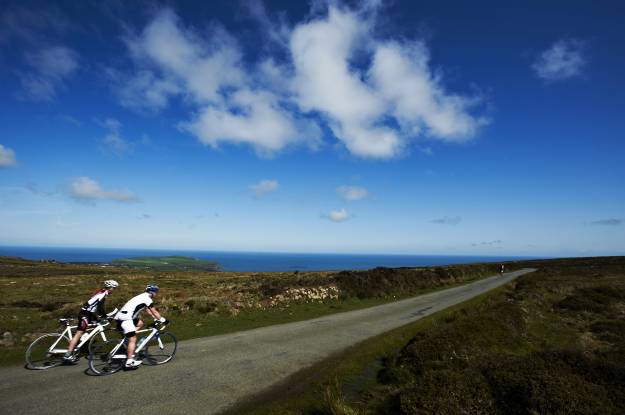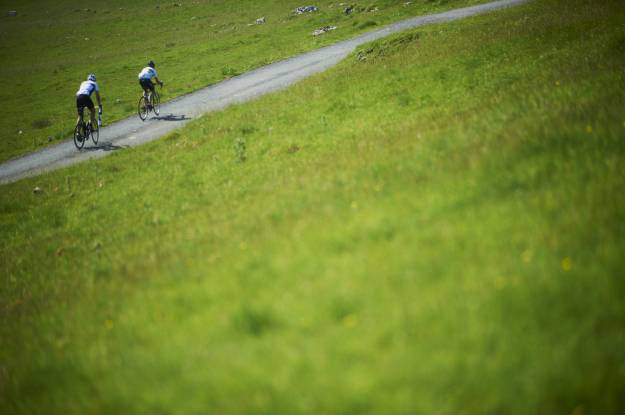As HSBC UK City Rides across the country continue, research has shown clear evidence of the benefits the increased cycling levels can bring to a city.
Research carried out by Newcastle University’s Urban Observatory project has revealed that, when city centre roads were closed to traffic during the city’s HSBC UK City Ride on 2 July, levels of harmful nitrogen oxide (NO) and nitrogen dioxide (NO2) fell by around 75%.
The event, which saw thousands of people take advantage of the opportunity to cycle around the traffic-free streets, was the fourth in the series of HSBC UK City Rides, which will be visiting cities throughout the UK over the summer, continuing in Manchester this Sunday.
Several of the Urban Observatory’s air quality monitors are situated on the route that participants rode, and they have revealed that, during the event, NO and NO2 levels measured approximately 5ppb (parts per billion), as opposed to around 20ppb at the same time the previous Sunday.
On the day before the event, levels exceeded 100ppb at times.

There was also a comparison taken on Blackett Street – a normally heavily trafficked area of the city – which usually records ‘significantly more’ NO than a pedestrianised area 140 metres away. While shut to traffic on the Sunday, the difference between NO levels on Blackett Street and the pedestrianised area was ‘negligible’.
After the event finished, and the road was reopened to traffic, the NO levels picked up again.
Julie Harrington, British Cycling’s chief executive, said:
“The partnership between British Cycling and HSBC UK is focused on bringing about genuine societal change through getting more people on their bikes. The series of HSBC UK City Rides give people in cities across the country the chance to experience riding on traffic-free streets – something which resembles the conditions for cyclists in countries such as the Netherlands and Denmark, where cycling infrastructure is prioritised.
“This evidence from Newcastle University adds further weight to the case for greater importance to be put on sustainable transport in this country if we’re to create the greener, healthier, happier nation that we all want to see.

“We look forward to welcoming thousands of people to the streets of several further cities for forthcoming HSBC UK City Rides, and inspiring people across the country to make cycling part of their everyday lives.”
Ian Stuart, CEO UK of HSBC, added:
“These dramatic results show the massive difference more bikes could make. As part of HSBC UK City Ride, fourteen cities are traffic-free for a few hours. This helps thousands of people, including families, enjoy being active in cleaner air. We hope this experience leads to more people cycling more of the time.”
The Urban Observatory is a multi-million pound research project led by Phil James and funded by the EPSRC. The five –year programme analyses urban air quality and other environmental indicators to develop an evidence base for intervention in complex urban systems.
The events are completely free and participants can either register their participation at www.letsride.co.uk or enter on the day.










